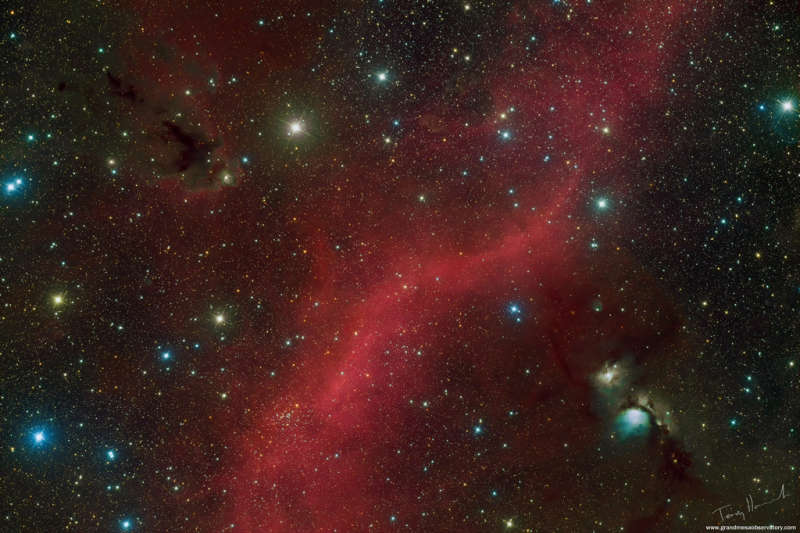Credit & Copyright: Terry Hancock
(Grand Mesa Observatory)
Explanation:
Bright stars, interstellar clouds of dust and glowing nebulae fill
this cosmic scene,
a skyscape just north of Orion's belt.
Close to the plane of our
Milky Way Galaxy,
the wide field view spans just under 5 degrees or about 10 full moons on
the sky.
Striking
bluish M78,
a reflection nebula, is at the lower right.
M78's tint is due to dust preferentially reflecting the
blue light of hot, young stars.
In colorful contrast, the red swath of glowing hydrogen gas
streaming through the center is part of the region's faint but
extensive emission nebula
known as Barnard's Loop.
At upper left, a dark dust cloud forms a prominent silhouette
cataloged as LDN 1622.
While M78 and the complex Barnard's Loop are some 1,500 light-years
away, LDN 1622 is likely to be much closer, only about 500
light-years distant from our fair planet Earth.
1999 2000 2001 2002 2003 2004 2005 2006 2007 2008 2009 2010 2011 2012 2013 2014 2015 2016 2017 2018 2019 2020 2021 2022 2023 2024 2025 2026 |
Yanvar' Fevral' Mart Aprel' Mai Iyun' Iyul' Avgust Sentyabr' Oktyabr' Noyabr' Dekabr' |
NASA Web Site Statements, Warnings, and Disclaimers
NASA Official: Jay Norris. Specific rights apply.
A service of: LHEA at NASA / GSFC
& Michigan Tech. U.
|
Publikacii s klyuchevymi slovami:
Orion - Orion
Publikacii so slovami: Orion - Orion | |
Sm. takzhe:
Vse publikacii na tu zhe temu >> | |
